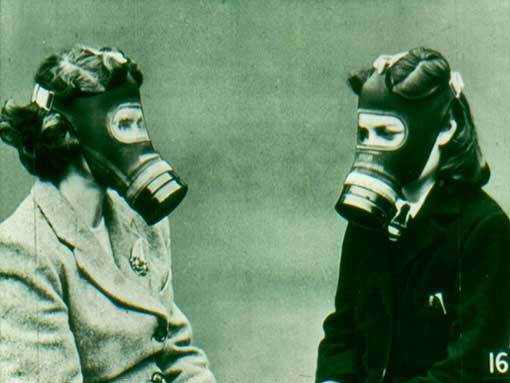There is something for the fans of old synthesizers, industrial sounds, punk, experiments and performance. Cabaret Voltaire will arrive to Brno tomorrow: a band, which chose its name after the famous Dadaist place in Zurich.
Cabaret Voltaire entered the world of rock music at a moment when no one knew anymore what would happen with it. The year was 1973, everything was ruled by hard rock and art rock and not musicians, but a deity stood on giant stages. Just the idea of a boy from the streets buying similar equipment and trying to match them seemed unreal. Cabaret Voltaire acted more like an association of performing freaks and they had to wait a little longer for the right moment. A few years later, (post) punk and new wave helped them. The performers were suddenly so terribly unavailable and virtuosic play on the guitar was unconditional – on the contrary, it seemed to them that anything was possible.
The pioneers of electronic and industrial sounds naturally fit into the new, wild stream. They climbed out of the cellar and they exchanged the "do it yourself" recording for the label Rough Trade. With this label, they took first place in the independent charts in the UK twice with the albums Red Mecca and 2x45. It was in 1981-82 and the band sounded as if it had borrowed its rhythms from Depeche Mode and the urgency and rawness from Cave's Birthday Party. However, if there were any influences, it was more in the opposite direction. Anyone, who tried to create music using synthesizers and industrial sounds, probably came across Cabaret Voltaire.
In the 1980s, Cabaret Voltaire experienced their creative and media peak and they stood at the beginning of the electronic era in popular music. Use of samples, synthetic sounds, complicated post production – it all sounds so banal today and the technology is boringly easily available. However, Cabaret Voltaire were there when the new Act on Electronic Music was formed. Feruccio Busoni began writing the old one in 1907 in his Sketch Of A New Esthetic Of Music. However, the specific sounds and electronic instruments as used by Varèse or Messiaen barely reached the audience in post-punk clubs. Bands had to come that were much closer to the pop world and Cabaret Voltaire were among the first ones. Kraftwerk could be their intellectual counterpart.
The career of Cabaret Voltaire closed in 1994 when their latest album The Conversation was released. The fans of the band had to wait for their return until 2014 at the Berlin Atonal Festival. Strictly speaking, the return of the last original member Richard H. Kirk. The concert on 18 May 2016 at Fléda should be a journey to the roots of eletronics in pop music: through the contemporary production – Aid Kid, Fiordmoss or HuJo – he will dive all the way to the beginnings. And Daniel Miller, founder of the legendary Mute label, will also perform as a DJ. This label was not releasing records of Cabaret Voltaire, when they were "live", but it releases their archive. In the Mute catalogue, they could find common ground with both Einstürzende Neubauten and Erasure.































